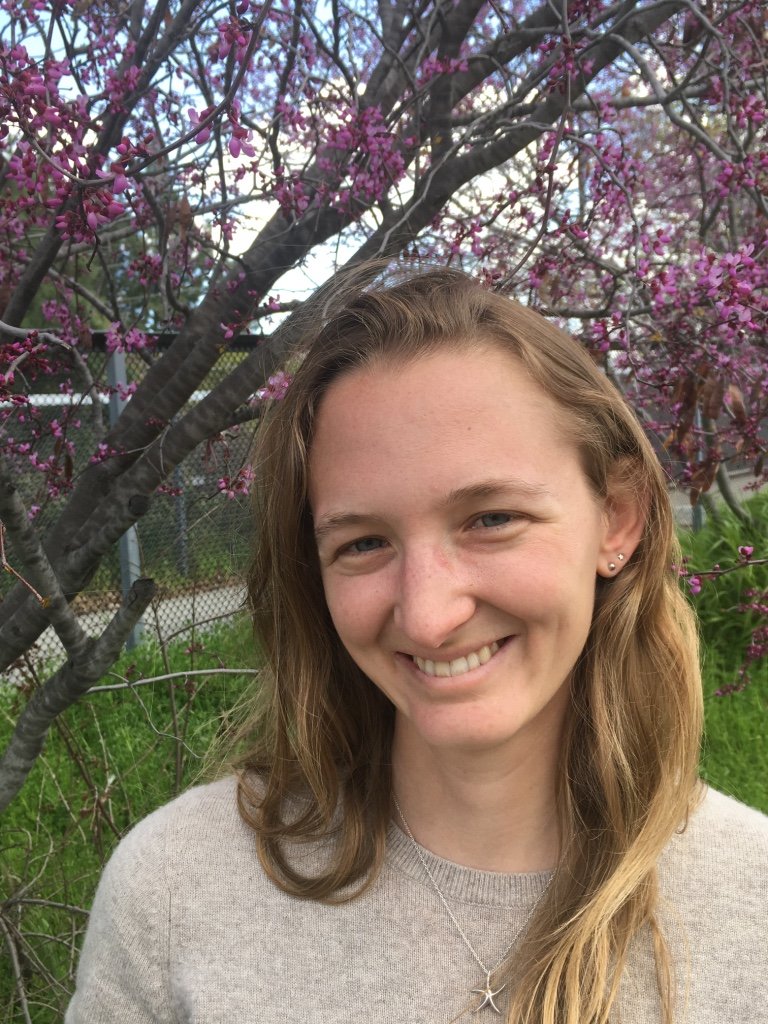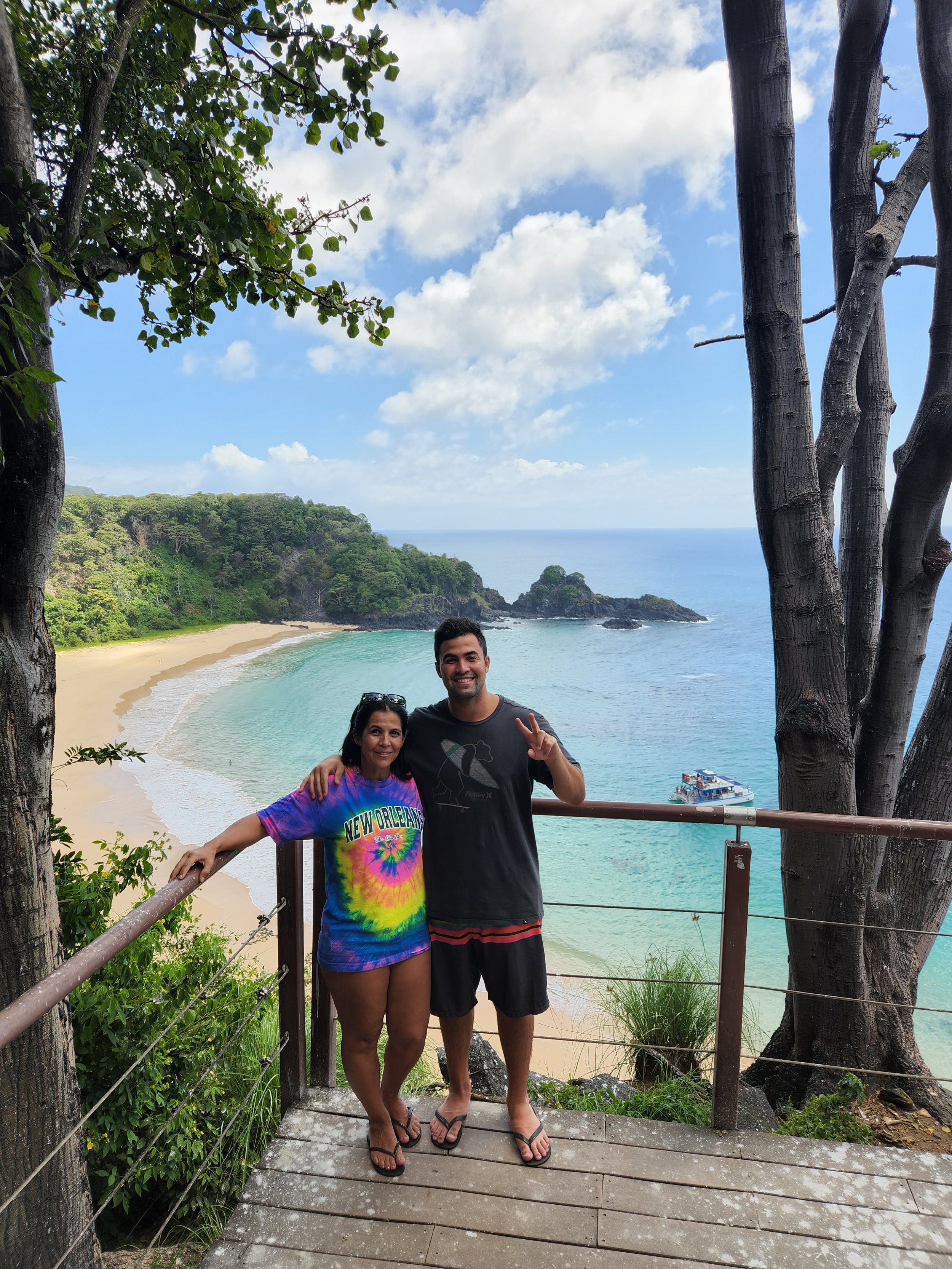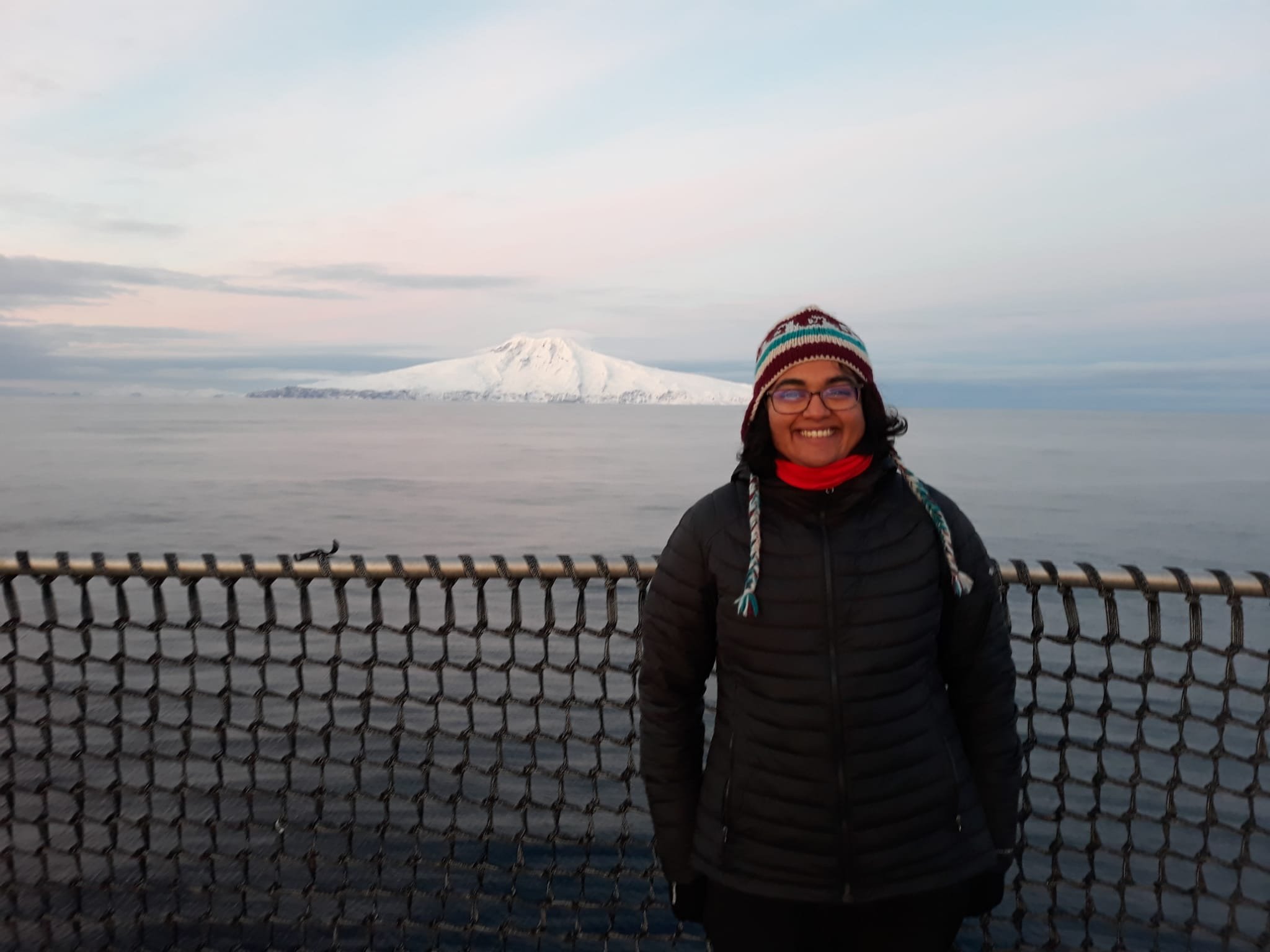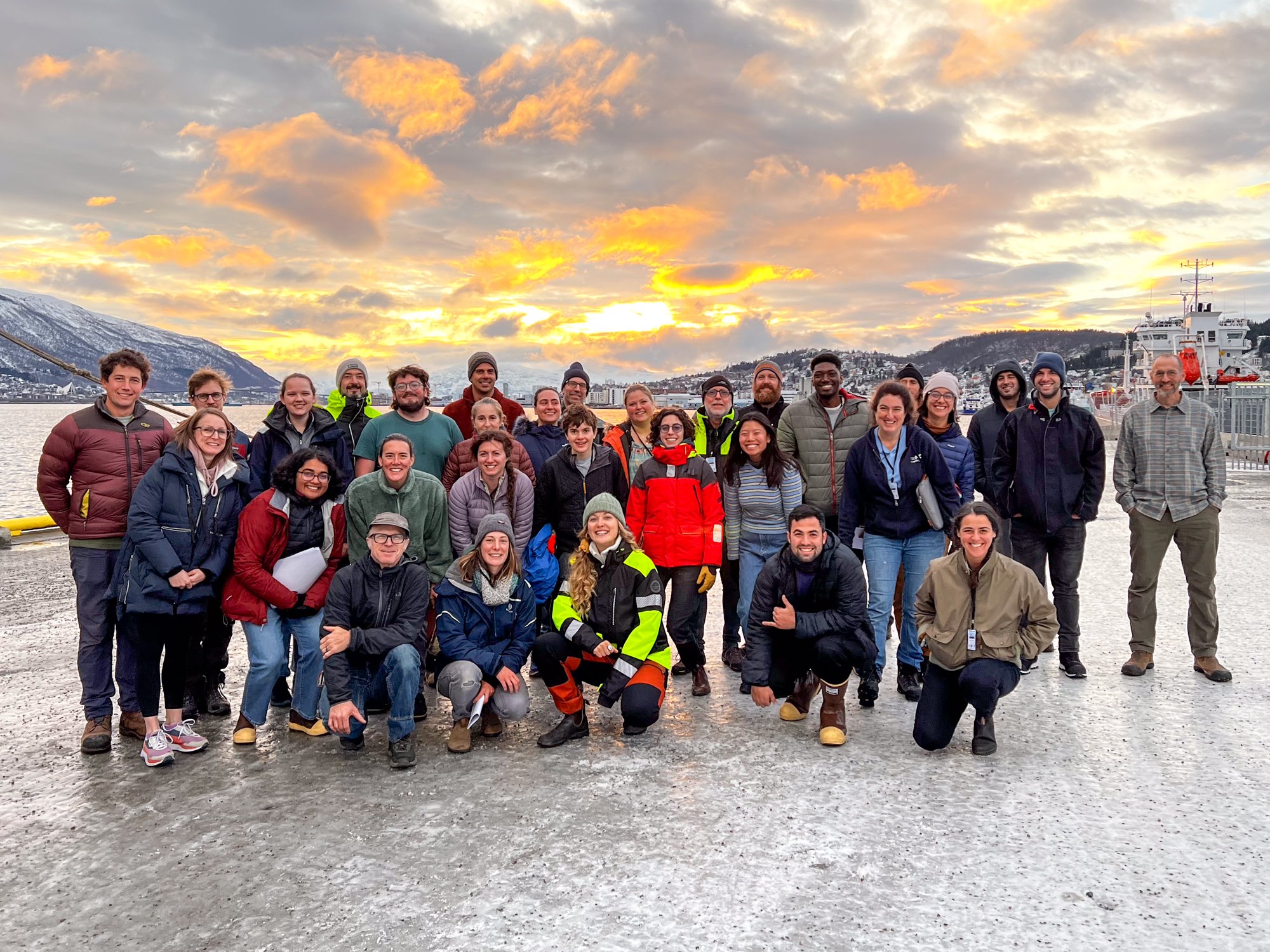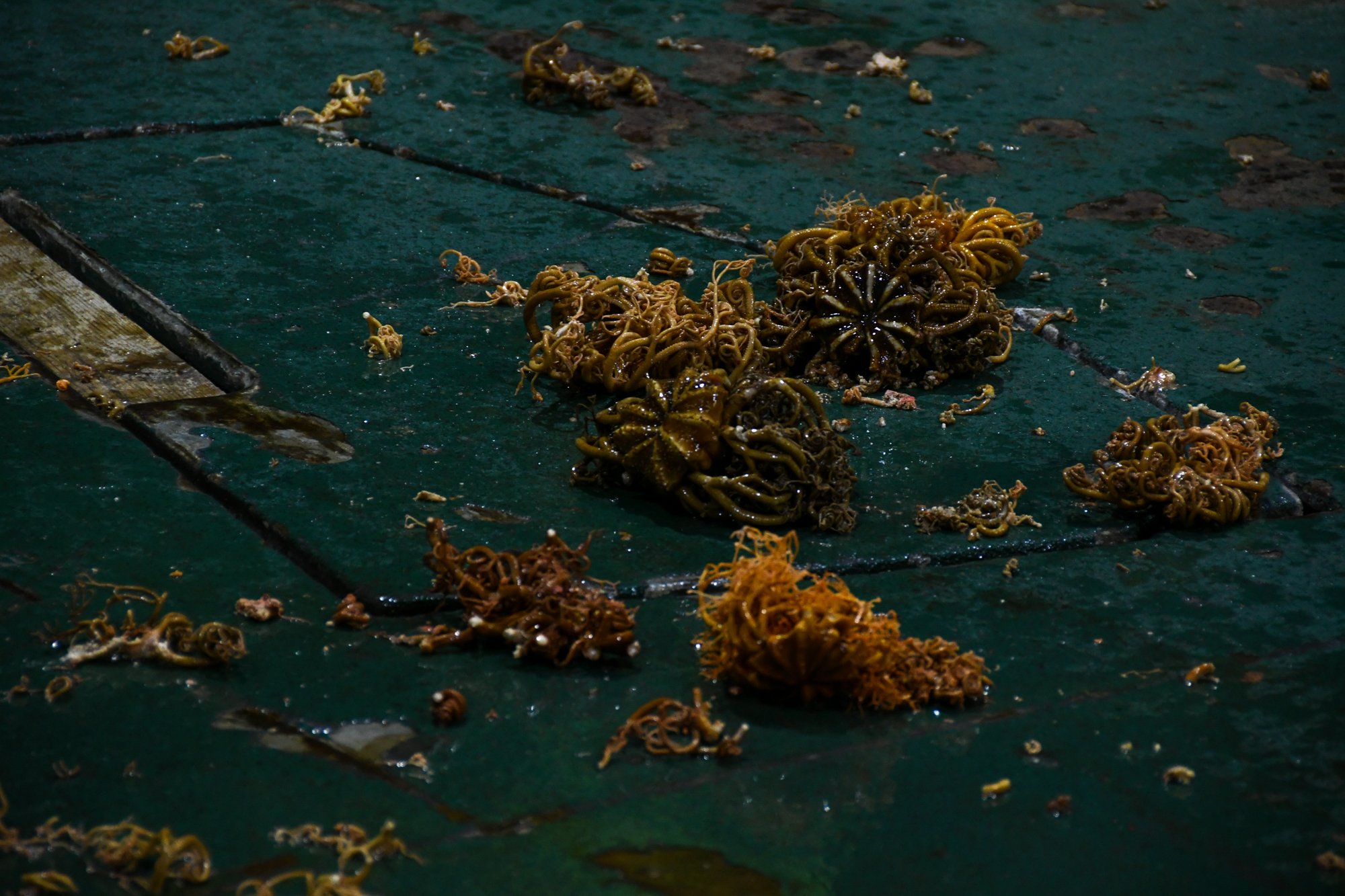What is your background and what are you working on at the moment?
I majored in physics as an undergrad and then applied to a PhD program in physics. The summer before I started that program, I got an internship with MOD and loved it! I ended up doing two years of the physics program to get a master’s degree, but then I switched over to the PhD program here at Scripps. I had Jen MacKinnon and Matthew Alford as my advisors and mostly worked on a project in the Arctic called ArcticMix. After graduating I moved to WHOI [Woods Hole Oceanographic Institution] to do a postdoc with Sylvia Cole and then John Toole before coming back to Scripps for another postdoc with Julie McClean. This past September I officially became a project scientist with MOD.
Right now I’m on an EAGER (EArly-concept Grants for Exploratory Research) award which is something the National Science Foundation gives out. It’s almost like a “seed funding for scientists award”, where you can spend some time researching things that may or may not work. We are using that to analyze a dataset collected with chi-pods, a type of microstructure instruments, that were sent on hydrography cruises in the Arctic and we’re trying to figure out if we can use these to understand changes in Arctic mixing and heat fluxes. The Arctic is very a special region when it comes to how many ocean processes work, so the normal assumptions we make to be able to compute and estimate things don’t necessarily hold in this environment. It is difficult to sample in the Arctic and yet it’s such an important region to understand our oceans and climate, so we really want and need all the data we can get from there! We’re currently trying to determine what modifications need to be made to our assumptions, and we’re also working on a proposal to hopefully be able to collect more of this type of data which is exciting!
What keeps you excited and interested in working in the field of oceanography?
I’m drawn to it because I get to use the type of problem solving I did throughout my physics PhD, and in a setting where the implications can really matter for people. When I think about the big challenges we are facing today, like climate change, it can feel so insurmountable. But here I’ve found a little corner of science where I can use the skills I have and maybe make things a little bit better. I find that really fulfilling. Plus, I just really like the ocean. Sometimes when I look at some data and am confused I can think “Ok, this is what the ocean says, I don’t have to understand it but this is what is happening” and I know I can keep working on something I love to try to understand it a little bit better.
When you were a kid, did you expect to be a scientist?
I don’t think I used the word “scientist”, but I had many science-related ideas of what I wanted to be. I considered becoming a paleontologist, a veterinarian, a teacher, a marine biologist.… I do feel like I’ve been able to combine many of the things that drew me to some of these professions in my current role though. For example, I really like the mentorship aspect of being a scientist which is what drew me to teaching, and I love getting to study the natural world, which was part of the appeal of paleontology and marine biology.
Were there any particular things from your childhood that drew you to study the ocean?
We used to go vacationing at Cape Cod all the time and so I spent a lot of time bodysurfing and playing in the waves. I do vividly remember having these questions as a kid, like “why is the tide the way it is?” and “how do these waves work?” and I think there is a very direct line from that to wanting to do an internship at Scripps. Here I got to spend a lot of time both learning about the ocean and playing in it!
What skills or abilities do you think are useful when going into oceanography?
It’s almost more important to know what your skills are and what you enjoy doing, rather than having any specific skillset. I’ve gotten a ton of benefit out of the math and physics background that I have, but that’s also because of the very specific area of research that I’m doing. If you talk to someone who knows a ton about biology or engineering, or even who is coming from say a more social sciences or humanities perspective, that is also really powerful knowledge you could leverage. Knowing that you can work hard and be comfortable working on something and not knowing the answer for a long time is also useful. That probably goes for any type of science though!
What does a typical workday look like for you?
I’m not sure there’s a typical day, but generally a mix of answering emails, coding in Matlab, meeting and talking to colleagues, and connecting with people, sometimes not directly related to any specific project. That last part is super important to me. That is how I check in with myself, like “what am I doing and why?”
What drew you to Scripps?
Well, after college I took a gap year and traveled Europe and spent some time with my then boyfriend, now husband, who is from San Diego. His parents had friends who knew someone working as an engineer at Scripps, and that turned out to be Mike Goldin. I got come visit and get a tour of the lab which was great. Later when I was trying to figure out what to do the summer before moving to Colorado to study physics, I figured Scripps would be the ideal place for an internship. I had a blast that summer and that is what set me on the path towards now working here.
Is there a particular scientist/person/something that inspires you?
Going back to that first summer internship with MOD, Mike is really an inspirational person. No matter what problem he’s trying to solve, I’ve never ever heard him say ‘we can’t do that”. I try to bring that attitude into how I think about work and what we can do. I also met Jen that first summer and she really got me considering doing oceanography for a career path. The way she talks about science and shares her passion for oceanography is contagious.
Do you have a fun fact that you'd like to share that not everyone knows about you?
I train my dog to do agility. It’s something I started during grad school when I got my first dog, a rescue who really came out of her shell when we started training together. Now I have my second dog, Daisy Bee, who has been doing agility since she was a puppy, and it’s a ton of very silly fun.
Written by Kerstin Bergentz


